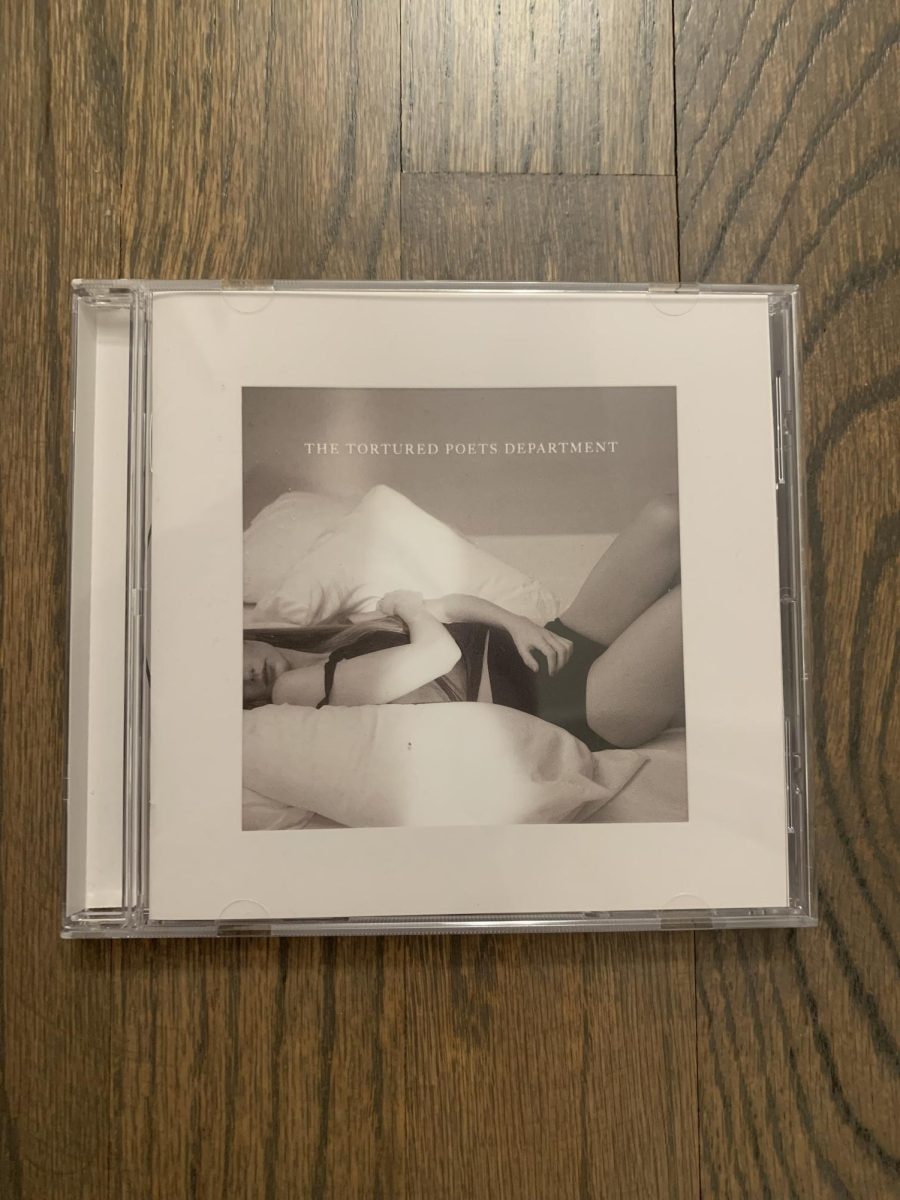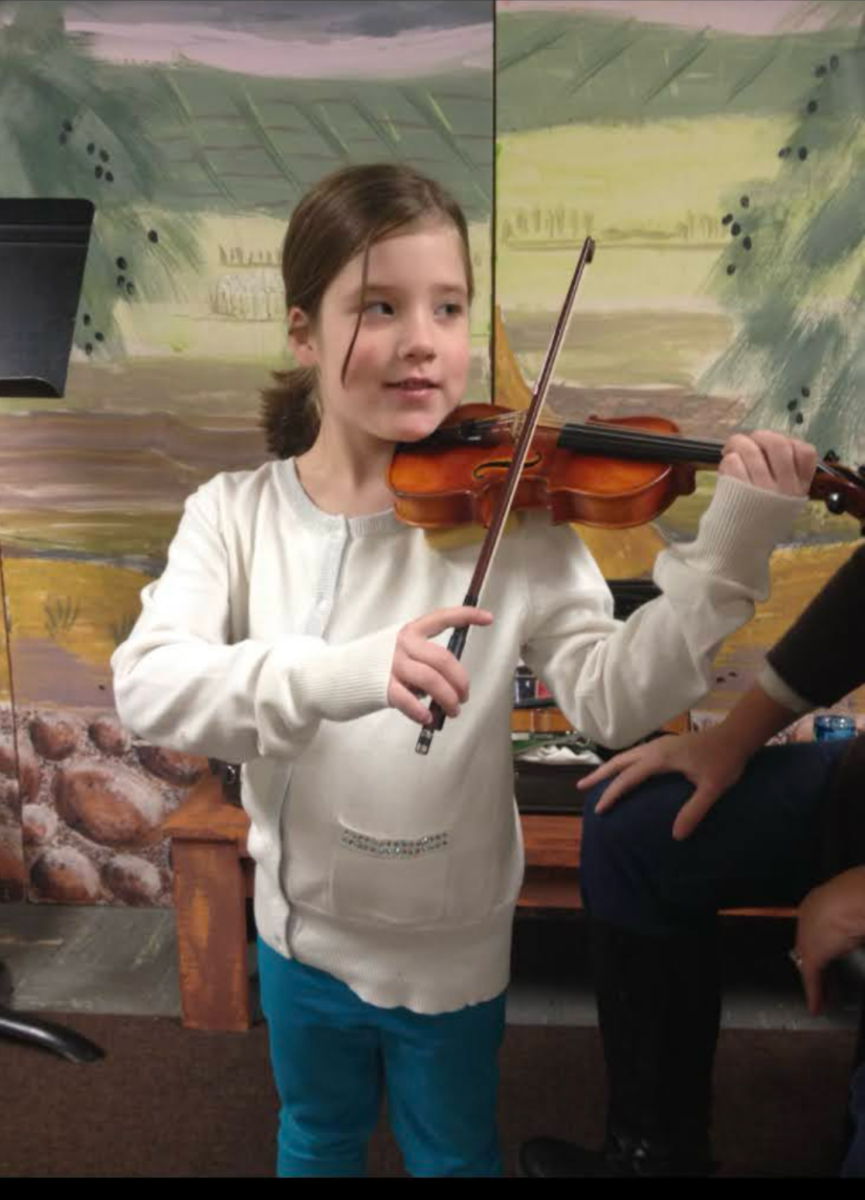On Friday, April 19th, at midnight EST, Taylor Swift dropped her much anticipated eleventh studio album The Tortured Poets Department, produced by her frequent collaborator Jack Antonoff. Then, two hours later, Swift dropped her lengthened version of this album: The Tortured Poets Department: The Anthology, including 15 more songs, produced by The National’s Aaron Dessner.
This double album drop was not a surprise to fans, who had picked up on the many “easter eggs” Swift had dropped in the lead up to this album’s release, including her holding up two fingers in some of her Instagram posts, two desks in the promotion for her new music video, and her flashing a peace sign when she first announced the album in her Grammys acceptance speech. However, many fans saw these hints as a sign that she would drop the re-recording of Reputation with this new album, one of the last in her illustrious “Taylor’s Versions” remasterings.
While many fans, including me, were excited about this double album drop, this also created a rivalry between the two producers: with listeners voicing their opinions on which half of the album they enjoyed more. Jack Antonoff’s half was full of more upbeat songs, similar to his work on Midnights, while Aaron Dessner’s half was more similar to folklore.
Personally, while both sections have their strengths and weaknesses, I enjoyed the second half more, as I felt that the lyricism was much stronger. In some parts of the first half, the music seemed to overpower the lyrics, which has led to many fans calling for Swift to stop working with Antonoff. While Swift and Antonoff is a powerful partnership, some sections felt as if Antonoff was desperately trying to recreate the success of his other projects, such as 1989 by Taylor Swift or Melodrama by Lorde. This led to his production seeming more like a recreation of past successes than actually adding anything new or meaningful for the music.
As a whole, this album is one of her most vulnerable yet. She drops more information than ever before about her personal life, including the end of her years long relationship with actor Joe Alwyn and her on-again off-again relationship with lead singer of The 1975, Matty Healy. Because of the sheer length and references in these songs, the album gets better with time. Processing thirty-one complex and lyrically dense songs all in one sitting felt overwhelming, yet every time I listen to these songs, I notice something new, a reference to a former song or a certain time in her life, making Tortured Poets Department a permanent part of my music rotation.
One standout on this album is the fifth track “So Long, London”, a hauntingly beautiful ballad about finally letting go of a relationship where your partner has never put in as much effort as you have. She opens the song with a repetition of the title, along with a melody similar to wedding bells, relating to the consistent theme of marriage throughout her work. Her first lyrics are, “I saw in my mind fairy lights through the mist. I kept calm and carried the weight of the rift. Pulled him in together each time he was drifting away.” With these words, she is able to beautifully articulate the feeling of fighting for someone that at the same time is isolating you, and the difficulty of fighting the uphill battle to keep someone who doesn’t actually want to be with you.
Some other standouts include “I Can Do It With a Broken Heart”, a catchy pop song about hiding your struggles under the mask of productivity, and “How Did It End?”, a slow melody about the ending of a years long relationship.
Overall, Taylor Swift has done it again with her eleventh studio album, masterfully crafting her most personal, yet still relatable, narrative yet. While these 31 songs seem to perfectly flow into each other, Swift could have done some editing down, as not every song on The Anthology measured up to the quality of lyricism we have come to expect from her. Despite needing some minor edits, the album as a whole is delicately laced with allusions and references, making for an enjoyable listening experience.
While no album will ever match up to the genius of folklore, The Tortured Poet’s Department is some of her best work, and with every listen, climbs closer and closer to the top of my rankings.








Angelina Girardin • May 23, 2024 at 09:02
So well written!